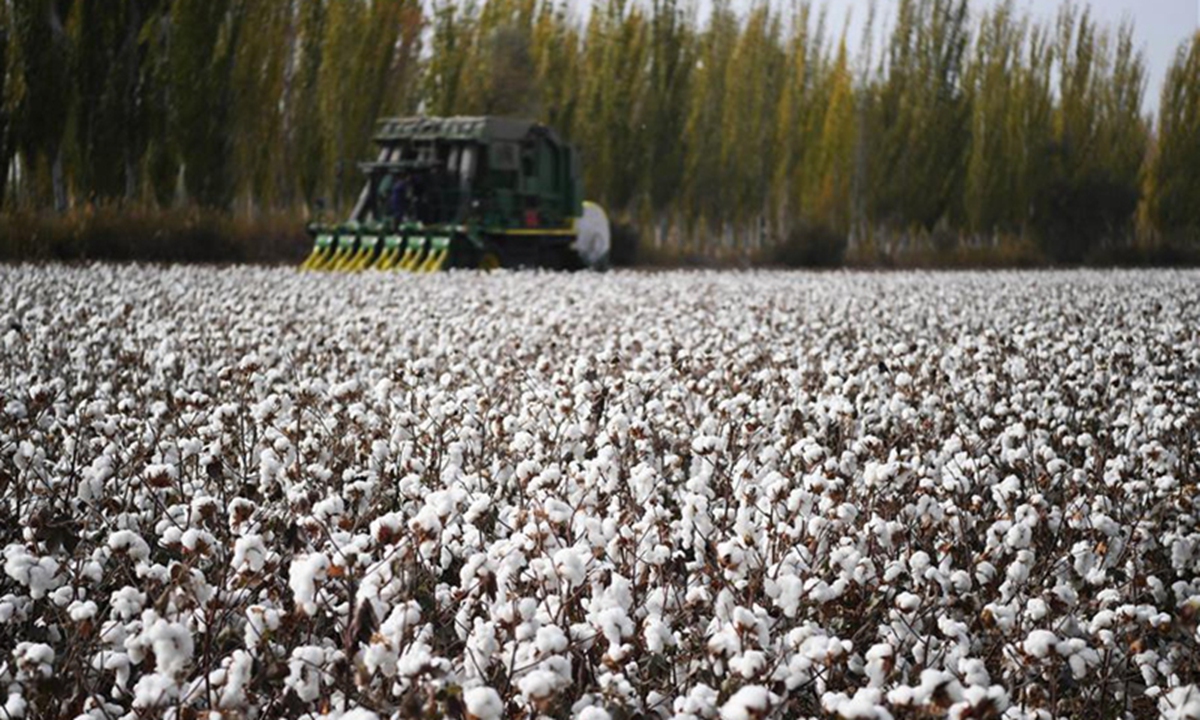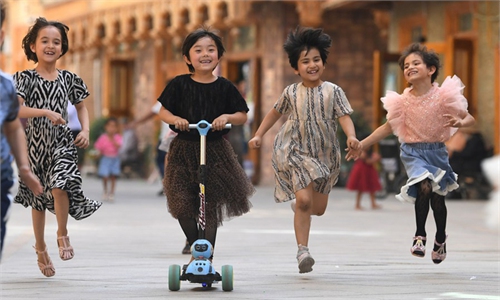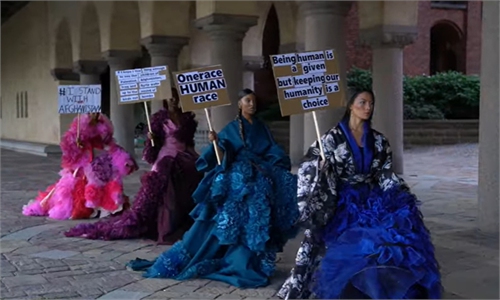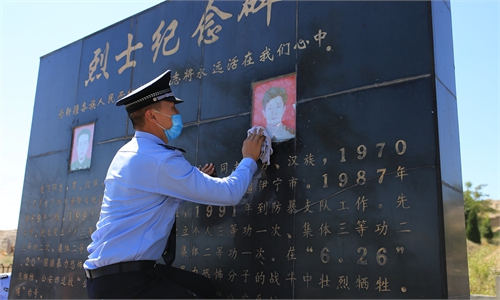
Photo:Xinhua
The European Centre for Constitutional and Human Rights (ECCHR), a German-based organization, recently filed a criminal complaint in the country against several textile brands and retailers, accusing them of being complicit in crimes against humanity on the basis that their supply chain may contain cotton from Northwest China's Xinjiang Uygur Autonomous Region. Several companies, including Hugo Boss and Lidl, were named by the ECCHR in a statement.
This is the latest attempt by some Western forces to crack down on cotton from Xinjiang. It also shows that some in Europe are keen to join the US' disgraceful crackdown on Xinjiang cotton and the broader Chinese textile industry based on complete lies about forced labor. That is a dangerous path for Europe, which, though has close political ties with the US, has massive economic and trade interests in China.
Recently, the US Customs and Border Protection has started to withhold imports which it deems to contain cotton sourced from Xinjiang. Apparently that vicious scheme is extending, which clearly has nothing to do with protecting human rights. Instead, it reveals the West's imperialist expansionism and deceitful mentality.
Forced labor in Xinjiang has been proven to be a complete lie, but how European countries destroyed India's cotton textile industry in the 18th century is a reality. What's also a reality is the rapid growth of China's textile industry, which has clearly made some Western forces jealous and threatened.
China has grown into a leading power within the global textile industry, supplying raw materials and manufactured products to the world. Moreover, Chinese textile brands have witnessed rapid growth in recent years with greatly improved quality and brand recognition; it is expected that Chinese brands will ascend into the premium global brand category in the near future.
Against this backdrop, some Western forces have flustered and begun to devise strategies to wreck China's textile industry, even though the massive middle and low-income groups in their countries may not be able to live without textile products made in China.
Behind their fear of being replaced by the Chinese textile industry, the real intention of these forces is clear for all to see: to crack down on a competitor they can't compete with in a fair market.
Xinjiang produces some of the highest quality cotton in the world thanks to its unique natural conditions such as big temperature difference in the summer and sufficient sunlight.
More importantly, Xinjiang cotton has long realized a high-level of mechanized production with simply no need to use so-called "forced labor." In 2020, the proportion of Xinjiang cotton that was picked by machine reached 69.83 percent, while the proportion reached 95 percent in the northern part of Xinjiang.
Yet, the truth of Xinjiang people living in peace and prosperity and enjoying complete freedom in choosing their own occupation does not matter to these malicious anti-China forces.
These Western forces may be reluctant to talk about the real Xinjiang, but we have to remind them that, without the Chinese textile and clothing industry, their people may have to stay at home facing empty wardrobes. Their leading textile and clothing multinationals could also be crippled without Chinese suppliers.
As for Chinese textile and clothing brands, they have grown strong enough to withstand external attacks, not to mention that China's textile industry has the most complete industrial chain, with world-leading manufacturing capabilities and equipment.
China's textile industry accounted for more than 50 percent of the world's total textile market in 2020, producing 70 percent of the world's total chemical fiber and accounting for one-third of the global trade volume in the sector. China not only provides high-quality textile products to Western developed countries, but also to the low and middle-income groups across the whole world. By cracking down on the Chinese textile industry, these Western forces are depriving consumers all over the world of their basic rights to enjoy better products at affordable prices.
Finally, these anti-China forces should know that they don't have the strength or the power to repeat their "triumph" of destroying Indian textile industry again in China. If they don't believe that, they should check on their own houses first to see if there is any textile product from China.



